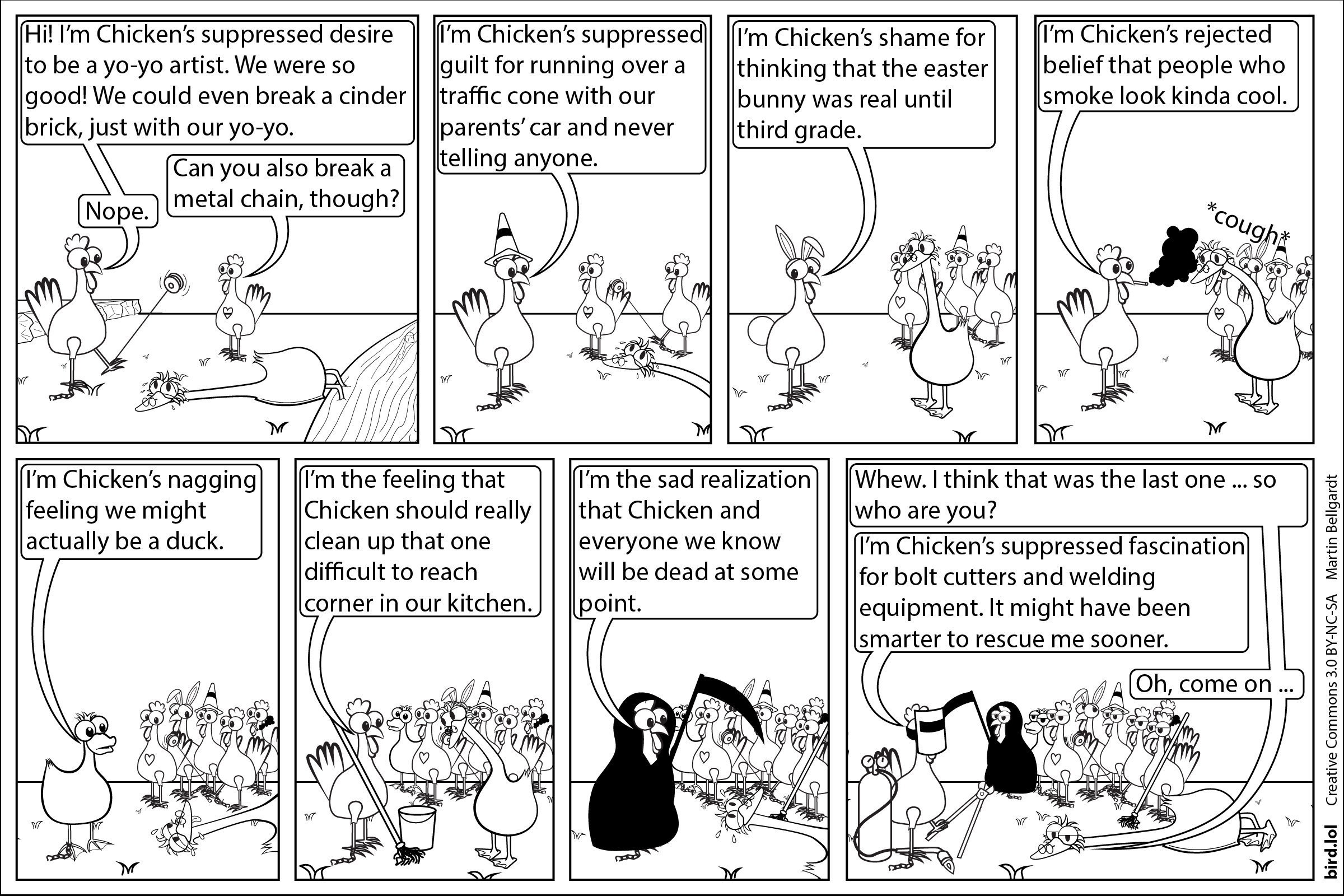In this blog, I revealed some potentially shocking beliefs of mine, since I decided to openly call myself a nihilist almost two years ago now. One thing I'm currently wondering is: if someone were to read all my blog posts and then meet me for the first time, are they going to trust me? How can someone who believes that everything is ultimately inconsequential, life is worthless and morality is entirely subjective care for what others think, feel or want? Although I was never asked that question directly, I think it would be natural for people to wonder about. It might even be a reason people have reservations towards nihilists in general.
Let me break this question down into multiple parts. The first and probably easiest being: can nihilists have empathy? To which the simple answer is: yes. Empathy, in its core, is nothing else than modeling. If you are empathetic, you are able to form mental models of other people that have high predictive power. Understanding other people's motivations, fears and aspirations is not much different from understanding anything else in the world, which nihilists are perfectly capable of, if not more capable since they don't have these annoying thought blockades placed by belief. So yes, nihilists can have empathy. You might say that empathy is more than just knowing about other people's feelings and requires some form of action. To which I'd answer that nihilists are free to define their own goals, which means they can do whatever they want, so they're perfectly capable of performing any action based on someone else's feelings to fulfill your definition of empathy.
Now comes the tricky part of the question: Are they going to do that, though? What, if not morality, makes people behave "altruistically"? Why should a nihilist care to do something that inconveniences them for the benefit of someone else? To answer that, let's look at this "morality" that allegedly drives other people to behave "altruistically" up close. It usually burns down to considering some predefined rules as if they were objective facts to arrive at a decision that is best for the given actor. But if you give money to a beggar because it increases your Karma, you're ultimately doing it for your own benefit and the beggar's. Same if you help out a relative who recently lost their job because you want your soul to go to heaven after you die. I'd argue that, from this rational perspective, true altruism is not possible.
But there is a second perspective, one that I have learned to value a lot more since I've become a nihilist. Acting in someone else's favor feels amazing. I'm serious. If you don't believe me, perform the following experiment: offer help to a good friend (one that you'd consider empathetic) and do something for them that requires some degree of sacrifice on your part, i.e., something physically exhausting, something that slightly scares you or just something that consumes a lot of your time. Now, unless you picked someone horrible to do this experiment with, they will thank you for it. At the time where the words "thank you" leave their mouth, pay close attention to your own body. What you're experiencing there is Serotonin.
Indeed, evolution has coded our endocrine systems to make us want to work together. It's not something that we need to construct with our rationality. We don't need "morality" to act "against our own interest" by helping others. Helping others *is in our interest*. Not to mention all the positive long term effects it has, such as improved relationships, more opportunities and simply the possibility to feel better in the future as well. Implying that people need morality to help each other out is just absurd. If anything, morality has the potential to distract us from this natural mechanism, framing people as enemies who are not to be helped and forcing us help others who might not even say "thank you" afterwards.
Morality and religion exist because people need easy rules to follow and easy explanations for why they should follow them. You can't consider all the context, all the implications and all the potential outcomes for every decision that you are making. That's why belief systems have these simple heuristics you can consult on how you should act in certain situations. It may or may not come as a surprise to you that I have these, too. The only difference is that I come up with them myself by trying to consider all the implications at some point. Also I'm willing to change them if they don't seem to be working. It's a long process of trial and error and a lot of thinking. It would be ridiculous if every person on earth had to go through the same process. That's why I still think that religion is ultimately a very important thing, just not for me.
So please don't be scared of me or other nihilists, just because I write some strange or even shocking things in this blog. In the end, I'm a human just like you. I might just be a little more aware of it, though.

